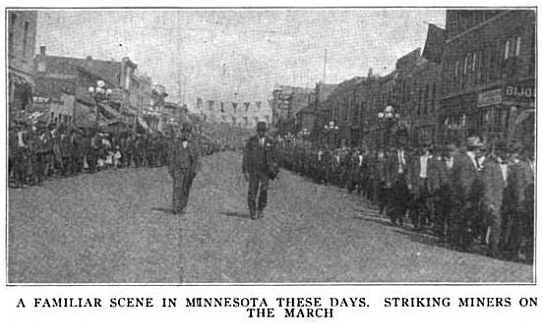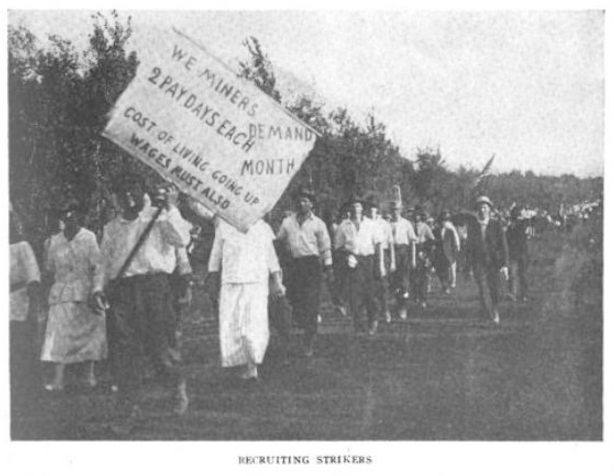There are no limits to which
powers of privilege will not go
to keep the workers in slavery.
-Mother Jones
Hellraisers Journal, Wednesday August 30, 1916
Mesabi Range, Minnesota – “A Fierce and Important Struggle”
From The Outlook: Report of Mary Heaton Vorse, Part I:
THE MINING STRIKE IN MINNESOTA
-FROM THE MINERS’ POINT OF VIEWSPECIAL CORRESPONDENCE OF THE OUTLOOK
ONE of the most sinister aspects of life in this country is the failure of the serious and thinking people to obtain prompt information about the various industrial struggles and to get at the causes which are at the root of our industrial unrest.
Since June 3 a strike has been waged on the Mesaba Range, Minnesota, whose largest single owner is the Oliver Iron Mining Company, an arm of the Steel Trust. This strike has affected the life, not only of the twelve thousand miners employed on the Range, but of ten towns and villages from Aurora to Hibbing, a distance of sixty miles. The strike has been characterized by the prompt deputizing of a large force of gunmen, numbering, according to Sheriff J. R. Meining, of Duluth, over a thousand; more, according to residents of the Range towns.
Continue reading “Hellraisers Journal: Mary Heaton Vorse on the Mesabi Iron Miners’ Strike in Minnesota, Part I”


